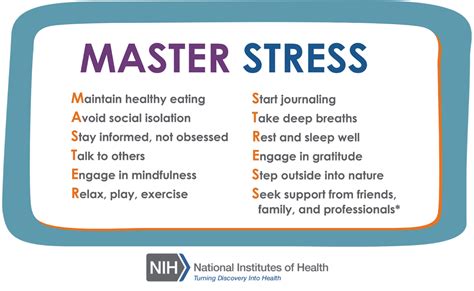Introduction

Sexually transmitted infections (STIs), commonly known as STDs, are infections spread through sexual contact. While most people associate STDs with genital symptoms, they can also affect other body parts, including the throat. Throat STDs, also known as pharyngeal infections, can have serious health consequences if left untreated. This comprehensive guide provides detailed information on how to test for STDs in the throat, including the different types of tests available, the recommended testing intervals, and the importance of prompt diagnosis and treatment.
Types of Throat STDs
Several types of STDs can cause infections in the throat. The most common include:
- Chlamydia: Caused by the bacterium Chlamydia trachomatis, chlamydia is the most common bacterial STD in the United States. It can infect both the throat and genitals.
- Gonorrhea: Caused by the bacterium Neisseria gonorrhoeae, gonorrhea can also infect the throat and genitals.
- Oral herpes: Caused by the herpes simplex virus (HSV), oral herpes is a viral infection that can cause painful blisters on the mouth, lips, and tongue.
- Syphilis: Caused by the bacterium Treponema pallidum, syphilis can progress through several stages, including a primary stage that may involve a sore throat.
- HIV: Caused by the human immunodeficiency virus (HIV), HIV attacks the immune system and can lead to AIDS if left untreated. Oral HIV transmission can occur through deep kissing or sharing contaminated objects.
Symptoms of Throat STDs
Symptoms of throat STDs can vary depending on the specific infection. However, some common signs to look for include:
- Sore throat
- Painful swallowing
- Swollen lymph nodes in the neck
- Hoarseness
- Difficulty breathing
- Unusual discharge from the throat
It’s important to note that not all throat STDs cause noticeable symptoms. Asymptomatic infections can still spread to others, highlighting the importance of regular testing.
Testing for Throat STDs
Diagnosing throat STDs involves a physical examination and laboratory tests. The following are the most commonly used testing methods:
- Throat swab: A sterile cotton swab is used to collect a sample of secretions from the back of the throat. This sample is then tested for the presence of STD-causing pathogens. Throat swabs are highly sensitive and specific, making them an effective way to diagnose throat STDs.
- Blood test: A blood test can detect antibodies against certain STDs, such as HIV and syphilis. Blood tests are less sensitive than throat swabs for diagnosing throat infections but can provide valuable information for identifying and managing systemic infections.
- Rapid point-of-care tests: These tests provide quick results for certain STDs, such as chlamydia and gonorrhea. They involve using a urine or swab sample and can be performed at healthcare clinics or even at home. However, rapid tests can be less sensitive than other testing methods, and negative results should be confirmed with a laboratory test.
Recommended Testing Intervals
The recommended frequency of STD testing depends on several factors, including individual risk factors and sexual history. According to the Centers for Disease Control and Prevention (CDC), all sexually active individuals should get tested for STDs at least once a year.
For those at higher risk, such as individuals with multiple sexual partners, a history of high-risk sexual behavior, or symptoms of an STD, more frequent testing may be recommended. Healthcare providers can assess individual risk factors and provide tailored recommendations for testing intervals.
Importance of Prompt Diagnosis and Treatment
Prompt diagnosis and treatment of throat STDs are crucial for several reasons:
- Preventing complications: Untreated STDs can lead to serious complications, such as pelvic inflammatory disease (PID), infertility, and other health problems. Early diagnosis and treatment can help minimize the risk of these complications.
- Reducing transmission: Treating STDs promptly reduces the likelihood of spreading the infection to sexual partners and helps prevent further transmission in the community.
- Monitoring treatment effectiveness: Regular testing after treatment can ensure that the infection has cleared and that additional treatment is not necessary.
Confidentiality and Privacy
STD testing is confidential and private, ensuring that individuals’ personal health information is protected. Healthcare providers are bound by law to maintain the confidentiality of patient medical records. Individuals should feel comfortable discussing their sexual health concerns with their healthcare providers and seeking testing as needed.
FAQs
1. What is the incubation period for throat STDs?
The incubation period for throat STDs varies depending on the specific infection. However, it typically ranges from 1-3 weeks for chlamydia and gonorrhea, 2-10 days for syphilis, and up to 50 days for HIV.
2. Can I get tested for throat STDs at home?
Home STD testing kits are available for certain STDs, such as chlamydia and gonorrhea. However, it’s important to note that these kits may not be as sensitive as laboratory tests and should be used for confirmatory testing after a negative clinic-based test.
3. What are the potential risks of untreated throat STDs?
Untreated throat STDs can lead to health problems, including sore throat, hoarseness, difficulty breathing, and swollen lymph nodes. In severe cases, untreated throat STDs can cause potentially life-threatening complications, such as bacterial meningitis and pneumonia.
4. How long does it take to get results from a throat STD test?
The time it takes to get results from a throat STD test depends on the type of test performed. Throat swab tests typically take 1-3 days to be processed, while blood tests may take longer, depending on the laboratory’s workload. Rapid point-of-care tests can provide results within 30 minutes to an hour.
5. Can I have a throat STD and not know it?
Yes, it is possible to have a throat STD and not experience any noticeable symptoms. Asymptomatic infections are common with certain STDs, such as chlamydia and gonorrhea. Regular testing is crucial for identifying and treating asymptomatic infections to prevent transmission and complications.
6. What should I do if I test positive for a throat STD?
If you receive a positive STD test result, it’s important to follow these steps:
- Inform your healthcare provider: Inform your healthcare provider and any sexual partners so they can be tested and treated as necessary.
- Seek prompt treatment: Start treatment as soon as possible to eliminate the infection and reduce the risk of complications.
- Follow instructions carefully: Take all medications as prescribed by your healthcare provider and complete the full course of treatment.
- Get retested: Get retested after completing treatment to ensure the infection has cleared.
7. What are the preventive measures I can take to avoid throat STDs?
To reduce your risk of contracting throat STDs, consider the following preventive measures:
- Use barrier protection: Use barrier methods, such as condoms, during oral sex.
- Limit sexual partners: The more sexual partners you have, the higher your risk of contracting an STD.
- Practice safe oral hygiene: Maintain good oral hygiene by brushing and flossing regularly to reduce the risk of oral transmission.
- Get vaccinated: Get vaccinated against HPV, the virus that causes genital and oral warts.
8. What are the resources available for support with STDs?
Various resources are available to provide support with STDs, including:
- Healthcare providers: Healthcare providers can provide confidential testing, treatment, and counseling on STD prevention and management.
- Community health centers: Community health centers offer low-cost or free STD testing and treatment to uninsured and underinsured individuals.
- Online resources: There are numerous reliable online resources that provide information on STDs, testing, and treatment, such as:
- CDC STD Information: https://www.cdc.gov/std
- Planned Parenthood: https://www.plannedparenthood.org/learn/stds
- National STD Hotline: 1-800-232-4636
Conclusion
Testing for STDs in the throat is essential for maintaining sexual health and preventing serious health complications. By understanding the different types of throat STDs, symptoms, testing methods, and the importance of prompt diagnosis and treatment, individuals can make informed decisions about their sexual health and take necessary steps to protect themselves and their partners.
















